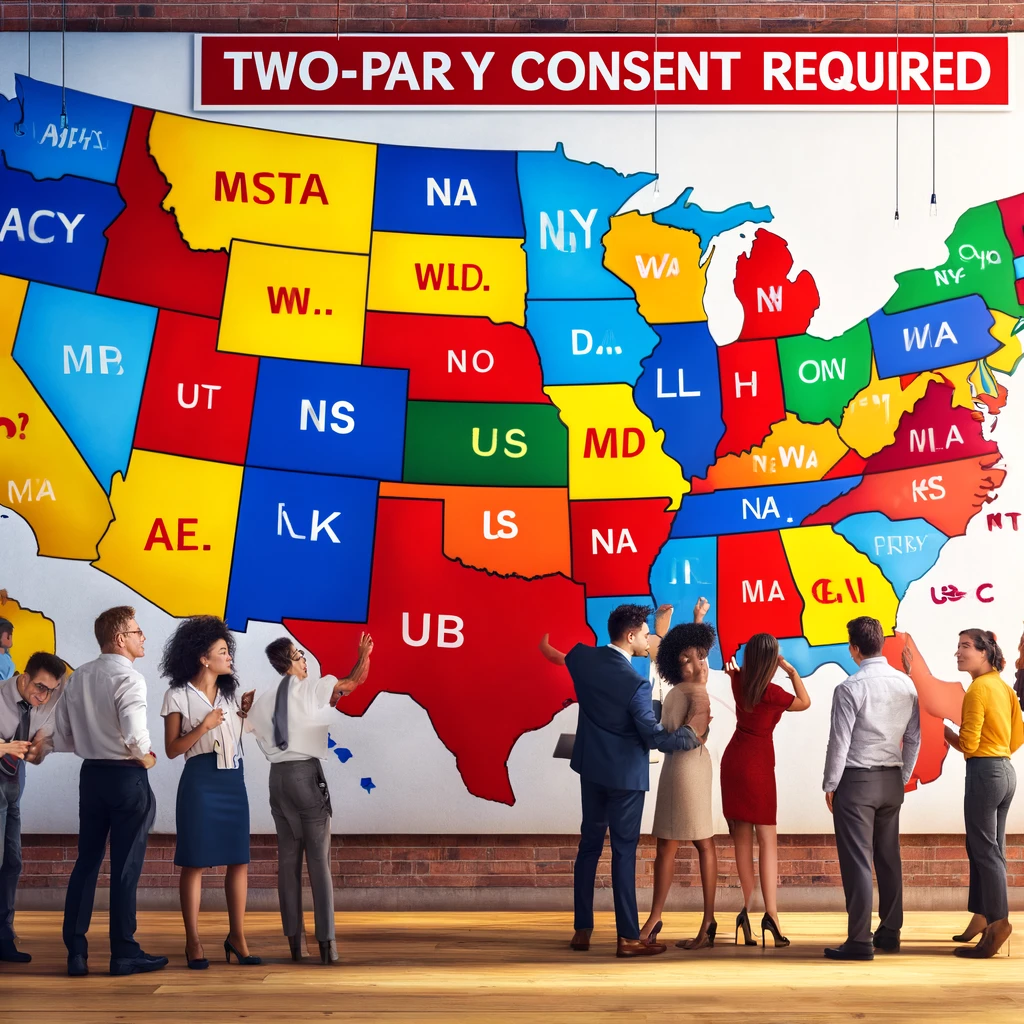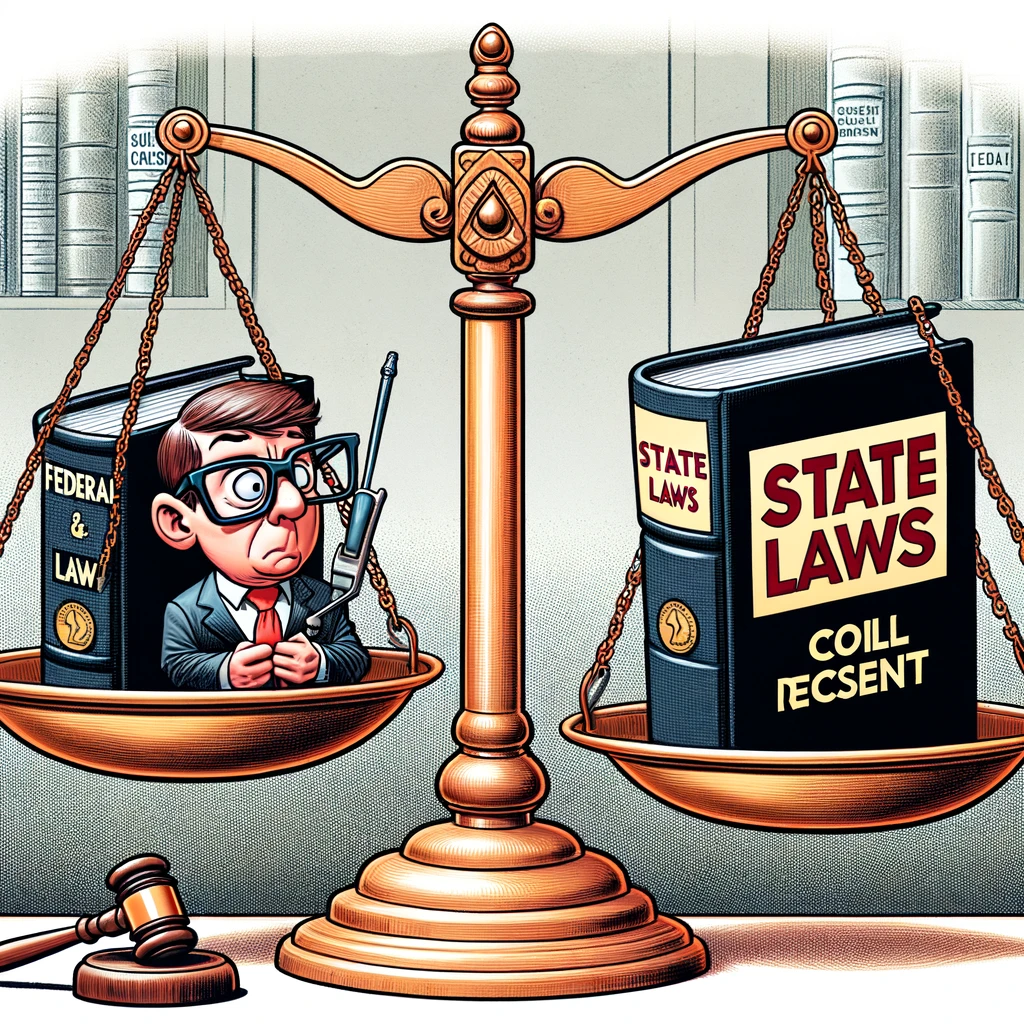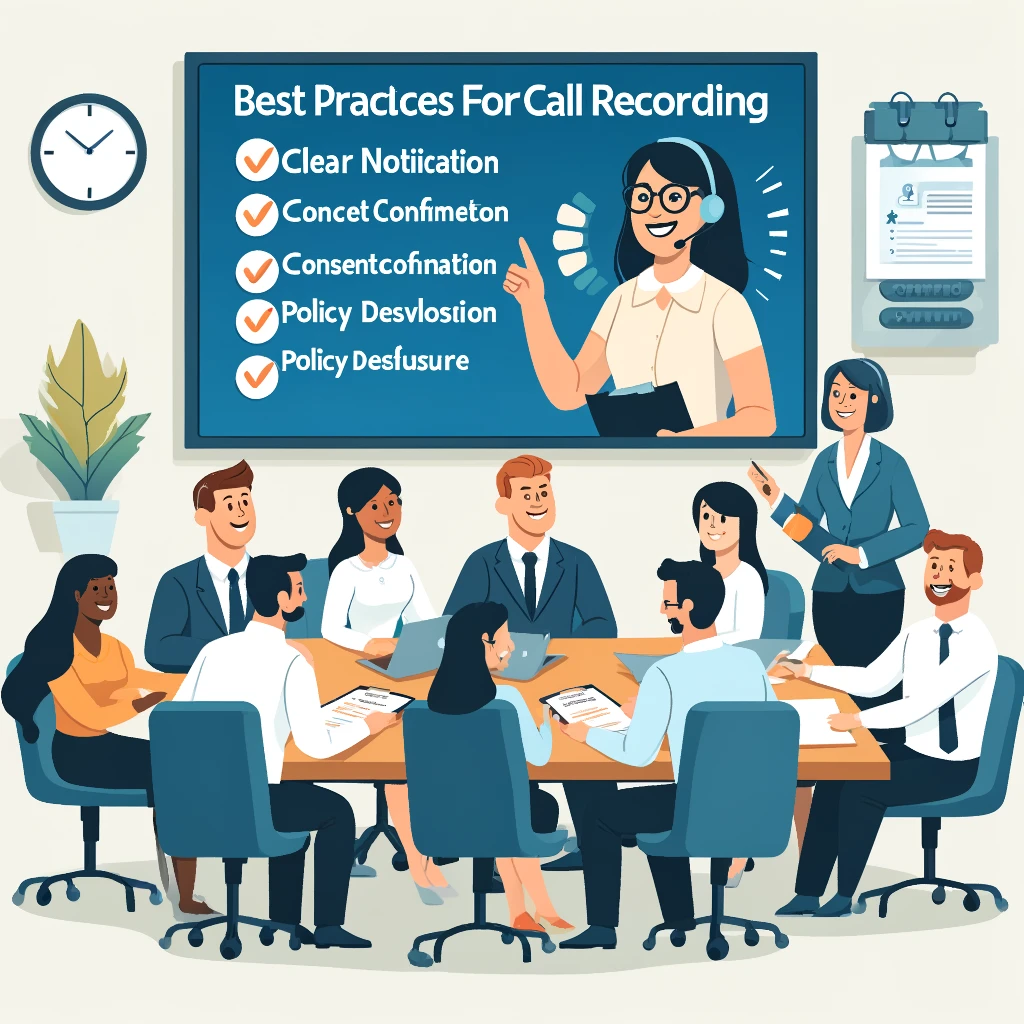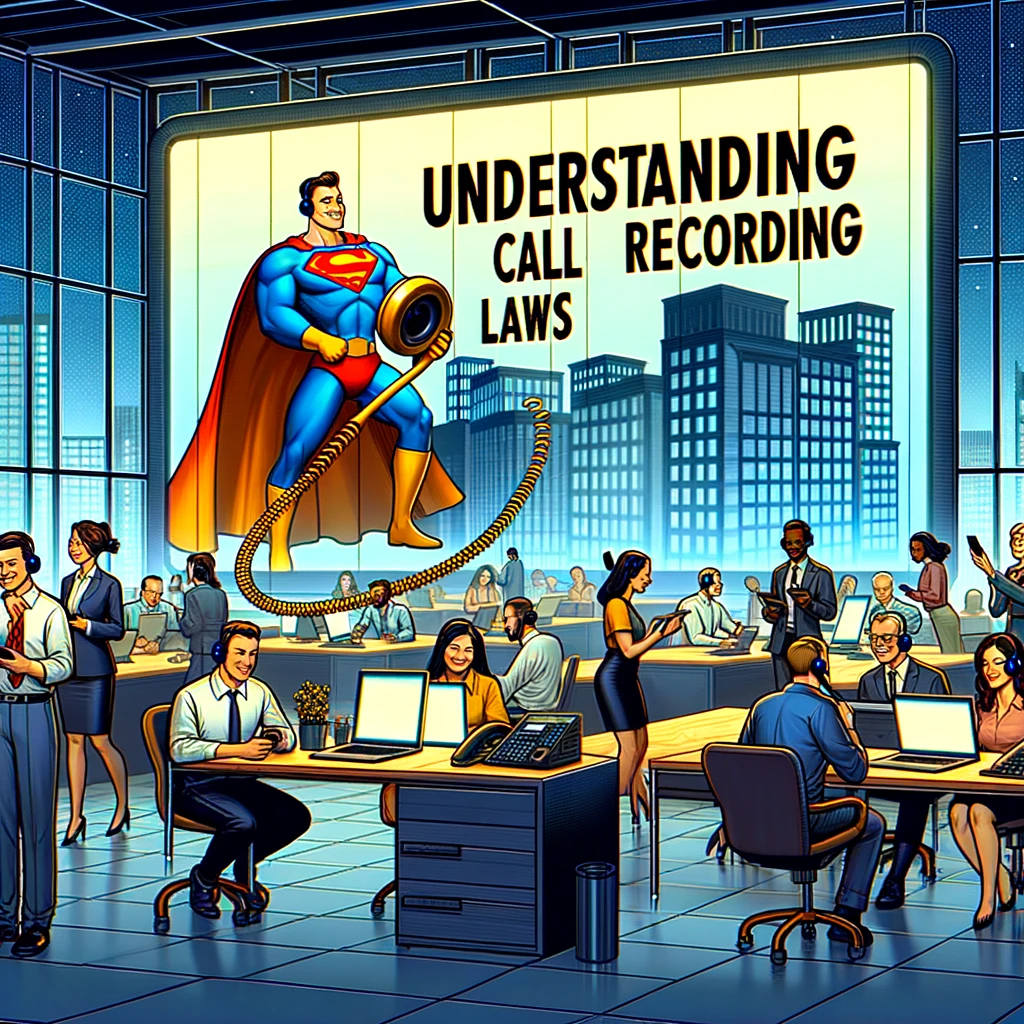Understanding Two-Party Consent States for Call Recording in the USA
No federal rules or international rules against recording phone calls without consent. However, you should be aware of and comply with state or country-specific laws, which may vary from State to State.
If you are making or receiving a call in any of the following states—California, Connecticut, Florida, Illinois, Maryland, Massachusetts, Montana, New Hampshire, Pennsylvania, and Washington—and the call is being recorded, you must be notified and give your consent, regardless of your location.
When it comes to recording phone calls, understanding the legal landscape is crucial, especially in the United States where laws vary significantly by state. For businesses like KeKu, which offers call recording capabilities as part of its services, navigating these laws is essential to ensure compliance and protect client privacy.
What is Two-Party Consent?

In the context of call recording, “two-party consent” means that all parties involved in a conversation must give their permission for the call to be recorded. This is also known as “all-party consent.” If you are in a two-party consent state, you must inform the other party that the conversation is being recorded and obtain their consent before proceeding.
The Two-Party Consent States

As of the latest guidelines, here are the states in the U.S. that require two-party (or all-party) consent for recording conversations:
- California
- Connecticut
- Florida
- Illinois
- Maryland
- Massachusetts
- Montana
- New Hampshire
- Pennsylvania
- Washington
It’s important to note that the laws can be subject to change and interpretations can vary, so it’s always a good idea to check the most current laws or consult with a legal expert when setting up call recording services in these states.
One-Party Consent States for Call Recording in the USA
In the USA, one-party consent states allow individuals to legally record a conversation as long as at least one party involved in the conversation consents to the recording. This means that if you are a participant in the conversation, you can record it without informing the other parties. Some of the states that adhere to one-party consent laws include:
- Alabama
- Alaska
- Arizona
- Arkansas
- Colorado
- Georgia
- Idaho
- Illinois
- Indiana
- Iowa
- Kansas
- Kentucky
- Louisiana
- Maine
- Minnesota
- Mississippi
- Missouri
- Nebraska
- New Jersey
- New Mexico
- New York
- North Carolina
- Ohio
- Oklahoma
- Oregon
- South Carolina
- South Dakota
- Tennessee
- Texas
- Utah
- Virginia
- West Virginia
- Wisconsin
- Wyoming
The remaining states with specific variations in consent laws or partial consent requirements include Delaware, Hawaii, Michigan, North Dakota, Vermont, and Wisconsin. These states may have particular conditions or exceptions in their recording laws, so it’s important to review the specific statutes for each state.
Federal vs. State Call Recording Laws

While the federal law in the United States adheres to a “one-party consent” system, where only one participant in the conversation needs to be aware of the recording, state laws can be more stringent. In two-party consent states, all parties involved must agree to the recording. This distinction is critical for businesses and individuals who operate across state lines, as the stricter state law typically applies in cases of interstate communication.
Implications for Businesses Using Call Recording

For businesses utilizing services like those provided by KeKu, understanding these legal stipulations is vital. KeKu offers features that allow for call recordings on virtual numbers, and these features are compliant with legal standards, provided that users adhere to the necessary consent protocols in their respective states.
For instance, if you’re using KeKu’s call recording feature in Florida, you must notify the caller at the beginning of the conversation that the call is being recorded. This could be achieved through a pre-recorded message or by the caller themselves. Failure to comply can result in legal penalties, which might include fines or even more severe legal repercussions.
Best Practices for Compliant Call Recording

Here are some tips for ensuring that your use of call recording technologies complies with two-party consent laws:
- Clear Notification: Always provide a clear and unambiguous notification before the recording starts. This can be an automated message or a verbal alert from the caller.
- Consent Confirmation: It’s advisable to get verbal confirmation of consent, which can also be recorded as part of the call for proof of compliance.
- Policy Disclosure: Include call recording disclosures in your company’s privacy policy and user agreements.
- Technological Compliance: Use technology solutions, like those from KeKu, which can be configured to adhere to different state laws concerning call recording.
Common Questions About Call Recording Laws
- What happens if I record a call without consent in a two-party consent state? Recording a call without consent in these states is illegal and can lead to lawsuits or fines.
- How do companies ensure compliance with two-party consent laws? Companies typically use technologies that integrate announcements or alerts informing the participant that a recording is in progress.
- Can I record a phone call with customers across different states? Yes, but you must comply with the strictest applicable laws, usually those of the state requiring two-party consent.
Why Understanding Two-Party Consent Laws is Beneficial for Your Business
Navigating the complexities of two-party consent laws may seem daunting, but there are significant benefits to understanding and implementing these regulations correctly in your business communications strategy. Being proactive about compliance not only minimizes legal risks but also enhances your company’s reputation and customer trust. Here’s why mastering these laws is advantageous:
Enhances Customer Trust
By adhering to two-party consent laws, you communicate to your customers that their privacy is a priority for your business. This transparency builds trust, which is crucial in maintaining long-term customer relationships. Trust is not just an intangible asset; it’s a competitive edge that can set you apart in a crowded market.
Avoids Legal Complications
Understanding and complying with two-party consent laws helps you avoid costly legal battles that can arise from recording calls without proper consent. Legal issues can be a significant drain on your resources, including time, money, and reputation. By ensuring compliance, you protect your business from the negative impacts of litigation.
Improves Service Quality
Call recording, when done legally, is an excellent tool for business improvement. Recorded calls can be reviewed to monitor quality, train employees, and refine customer service strategies. Knowing you are in compliance with the law allows you to use these recordings to their fullest potential to enhance service quality.
Secures Business Growth
Compliance with two-party consent laws is particularly important for businesses looking to expand across state lines. Each state’s recording laws may differ, and being knowledgeable about these variations ensures that your business can grow without running into compliance issues. This readiness not only protects but also smoothly facilitates expansion.
Competitive Advantage
In an era where data privacy is increasingly important to consumers, demonstrating your commitment to legal compliance can serve as a strong selling point. Businesses that are known for protecting customer privacy often enjoy better customer loyalty and more positive public perceptions, which can translate to a stronger market position.
Conclusion
By thoroughly understanding and implementing two-party consent laws, your business not only adheres to legal standards but also enjoys enhanced trust, improved service quality, and secure growth opportunities. KeKu’s commitment to providing compliant and high-quality call recording solutions reflects our dedication to your business’s success and integrity. Ensuring that your communication strategies respect privacy laws is not just about avoiding legal pitfalls; it’s about fostering a respectful and trustworthy relationship with your customers, thereby driving your business forward in a responsible and sustainable manner.






